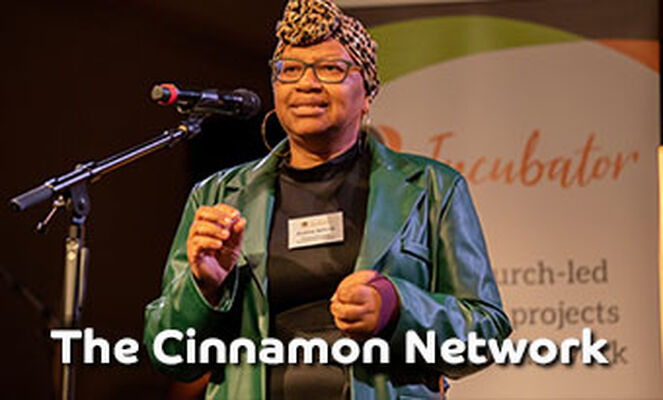Cruse Bereavement Support
Providing specialist bereavement support in prisons
Cruse has a long history of supporting grieving prisoners. Over the past three years our ‘Grief Inside’ project, funded by The Ministry of Justice, developed a framework of support to help meet the needs of prisoners with varying levels of grief complexity.
The project learnt that prisoners benefit greatly from having someone to listen to their experiences and to support them to learn healthier ways of coping and how to build stronger social support mechanisms.
Currently, there are 27 Cruse Bereavement Volunteers actively offering support across 19 prisons including Leeds, Bristol, Forest Bank and Eastwood Park.
Demand to expand this support is high and over the last two years Cruse has received at least 20 requests from other prisons wanting Cruse volunteers to be made available there.
To reach more prisoners more quickly, we are facilitating three bespoke Cruse Grief First Aider training courses to Prison Fellowship volunteers during autumn/winter 2023/24.
This has been made possible thanks to funding from Westhill Endowment. Each course comprises three, four-hour modules for up to 12 people and will equip the delegates with valuable bereavement awareness, skills and knowledge to provide enhanced pastoral support as part of their Prison Chaplaincy Teams across the country.
The nature of being in prison can lead many to experience profound feelings of loss and isolation. This is often keenly felt following a significant bereavement. The training provided will help prisoners adjust more readily to the pain of loss in this constrained environment.
- The first module concentrates on understanding why and how we grieve - recognising that we all grieve in different ways. For some prisoners, the stressors connected to a painful bereavement have resulted in poor coping strategies. These are often linked to offending behaviour - ultimately leading to sentencing and imprisonment. Prisoners commonly endure numerous deprivations. A large number suffer from mental health issues and the training considers the cultural and neuro-diverse variations of grief.
- The second module helps with building the relationship and developing the right communication skills. Prisoners commonly have trust issues and avoid talking about their feelings. Bereaved prisoners need to receive the right kind of support from people who offer respect and compassion, so they feel genuinely heard and understood.
- The third module concentrates on traumatic loss including bereavement by suicide, and how these deaths can impact the individual. Cruse encourages trainees to reflect on their own grief and loss, and how it ultimately shapes them.
Lucy Vernon, Trusts and Foundations Manager
E: Lucy.Vernon@cruse.org.uk T: 07984 234638
Charity Number: 208078; www.cruse.org.uk
The project learnt that prisoners benefit greatly from having someone to listen to their experiences and to support them to learn healthier ways of coping and how to build stronger social support mechanisms.
Currently, there are 27 Cruse Bereavement Volunteers actively offering support across 19 prisons including Leeds, Bristol, Forest Bank and Eastwood Park.
Demand to expand this support is high and over the last two years Cruse has received at least 20 requests from other prisons wanting Cruse volunteers to be made available there.
To reach more prisoners more quickly, we are facilitating three bespoke Cruse Grief First Aider training courses to Prison Fellowship volunteers during autumn/winter 2023/24.
This has been made possible thanks to funding from Westhill Endowment. Each course comprises three, four-hour modules for up to 12 people and will equip the delegates with valuable bereavement awareness, skills and knowledge to provide enhanced pastoral support as part of their Prison Chaplaincy Teams across the country.
The nature of being in prison can lead many to experience profound feelings of loss and isolation. This is often keenly felt following a significant bereavement. The training provided will help prisoners adjust more readily to the pain of loss in this constrained environment.
- The first module concentrates on understanding why and how we grieve - recognising that we all grieve in different ways. For some prisoners, the stressors connected to a painful bereavement have resulted in poor coping strategies. These are often linked to offending behaviour - ultimately leading to sentencing and imprisonment. Prisoners commonly endure numerous deprivations. A large number suffer from mental health issues and the training considers the cultural and neuro-diverse variations of grief.
- The second module helps with building the relationship and developing the right communication skills. Prisoners commonly have trust issues and avoid talking about their feelings. Bereaved prisoners need to receive the right kind of support from people who offer respect and compassion, so they feel genuinely heard and understood.
- The third module concentrates on traumatic loss including bereavement by suicide, and how these deaths can impact the individual. Cruse encourages trainees to reflect on their own grief and loss, and how it ultimately shapes them.
Lucy Vernon, Trusts and Foundations Manager
E: Lucy.Vernon@cruse.org.uk T: 07984 234638
Charity Number: 208078; www.cruse.org.uk



